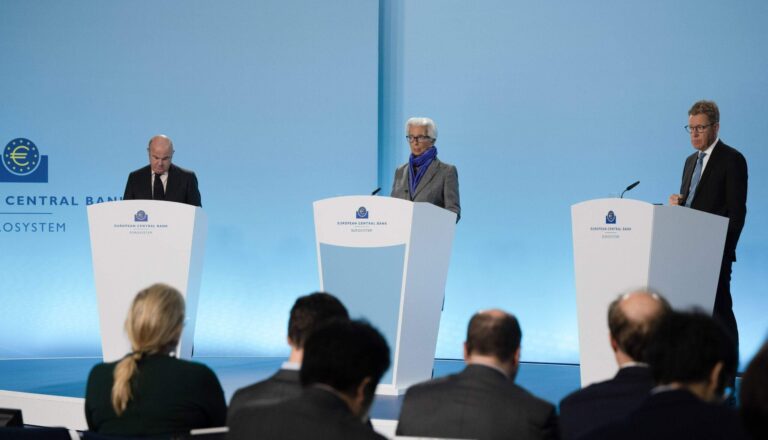The ECB opposes the idea of higher salaries to counter rising prices. Here is the explanation provided by Christine Lagarde.
People are fed up with the rising cost of living and are demanding higher wages. However, the European Central Bank (ECB) opposes this. And one wonders, “Why is it doing this?”. Christine Lagarde, number 1 of the ECB, made statements on the matter.
Table of Contents
ECB opposes higher salaries: here’s why
If the ECB does not want to raise the salaries of Eurozone workers, that is not to say that they are not “inflating” themselves. Because of inflation and thus the exponential rise in prices, wages have also been pointing upward. Lagarde and all her collaborators have declared that it is precisely wages that are the special observers in this delicate economic phase for the EU Community.
Inevitably, Europeans need more resources to survive rising prices, but the monetary policy pursued from the skyscrapers of Sonnemannstrasse 20 is rowing in the opposite direction. Indeed, the ECB chairwoman said:
“We know that wages are rising, probably at a faster pace than expected. We should not allow inflationary expectations to become unanchored or wages to have an inflationary effect.”
Lagarde then concluded by saying:
“We have to be careful that the domestic causes that we are seeing (causes of price growth), which are mainly related to fiscal measures and wage dynamics, do not lead to the consolidation of inflation.”
Simply put, if the ECB does not want to contribute to the increase in wages already naturally “pumped up” by rising prices, it is precisely so as not to play into the hands of inflation.
What is inflation and what effect it has on the economy
Inflation is a term almost abused by politicians and the press, but it is fundamental to understanding the price trends of goods and services over a given period of time and the purchasing power of a currency.
Generally with very high rates of inflation the currency tends to devalue and thus loses purchasing power. On the European Central Bank’s website, inflation is said to occur when:
“There is a wide-ranging inflation that is not limited to individual items of expenditure. This means that with one euro you can buy fewer goods and services today than in the past. In other words, inflation reduces the value of the currency over time.”
Inflation is not always negative. If the inflation rate is low there may be a spur to economic growth. In this case, the effects on the economy and currency of a given country are almost zero.
The problem occurs when the inflation rate tends to increase by unnaturally inflating prices. Many factors cause the inflation rate to rise, so there is no single, universal explanation for this economic phenomenon.
The European Union is tasked with keeping inflation stable at 2 percent in the medium term. However, the latest surveys recorded an overall increase of +25.7 percent in December 2022 compared to December 2021.












